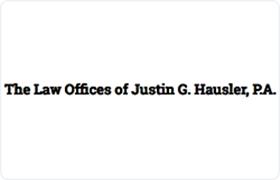Saint Cloud RICO Act Lawyer, Florida
Sponsored Law Firm
-
 x
x

Click For More Info:
-
The Law Offices of Justin G. Hausler, P.A.
5570 South US Highway 17-92 Casselberry, FL 32707» view mapCriminal Defense Because Your Case Matters
As a Former Prosecutor, Justin G. Hausler has a wealth of jury trial experience and offers representation regarding all misdemeanor and felony charges.
407-617-1064
Not enough matches for Saint Cloud RICO Act lawyer.
Below are all Saint Cloud Criminal lawyers.
Michael Thomas Reese
✓ VERIFIEDAccident & Injury, Criminal, Traffic
Florida Bar
My legal career began over 20 years ago as an Assistant State Attorney, prosecuting criminals in all manners of offenses, from petty crimes to capital... (more)
FREE CONSULTATION
CONTACTKenneth DeWayne Wynne
Other, Family Law, Criminal, Bankruptcy & Debt
Status: In Good Standing Licensed: 9 Years
Elizabeth Renee Dilts
Dispute Resolution, Clean Air Practice, Family Law, Juvenile Law, Criminal
Status: In Good Standing Licensed: 27 Years
Louis William Andrews
Federal Trial Practice, Federal Appellate Practice, Criminal, Administrative Law
Status: In Good Standing Licensed: 9 Years
 Justin Hausler Casselberry, FL
Justin Hausler Casselberry, FL AboutThe Law Offices of Justin G. Hausler, P.A.
AboutThe Law Offices of Justin G. Hausler, P.A. Practice AreasExpertise
Practice AreasExpertise

